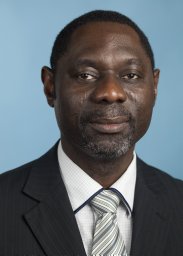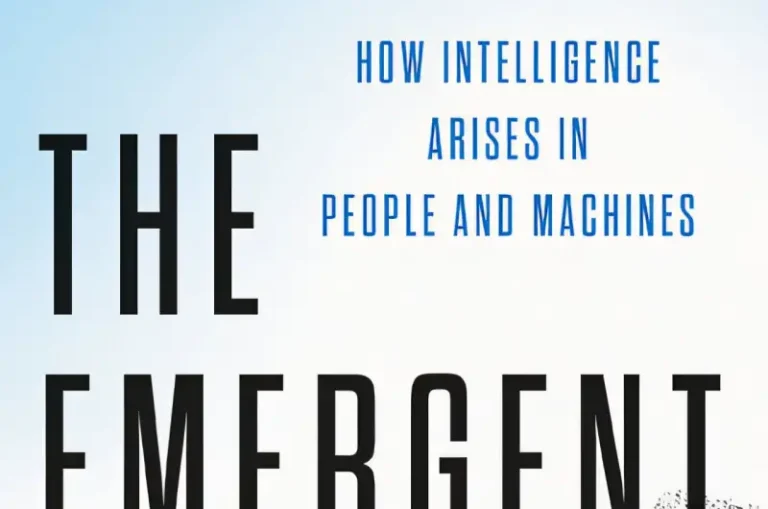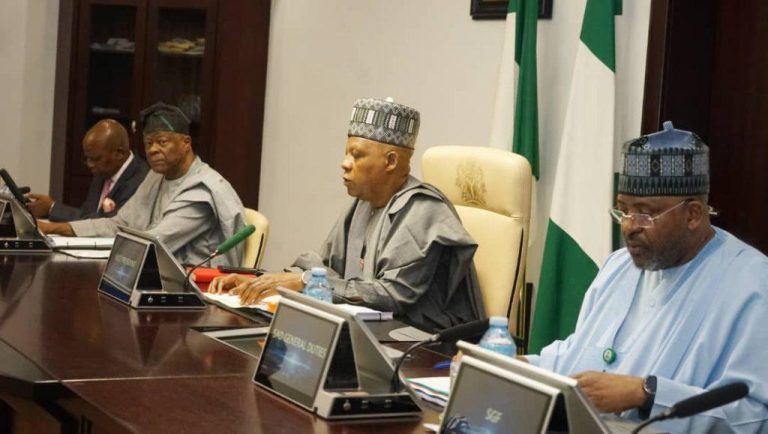
Prof._Ola_Ogunyemi
5 Hard-Won Truths About Progress from a UK based Professor, Farming in Rural Africa
Podcast with Ola Ogunyemi, Shepherd Food Ministries

The Real Source of Change
When we think about solving massive global challenges like poverty and food insecurity, our minds often jump to large-scale, top-down solutions.
We imagine progress requires a massive infusion of capital and sweeping government programs.
We talk endlessly about “brain drain”—the flight of talent from developing nations—as an insurmountable problem.
But what if the most powerful force for change is the exact opposite? What if it’s “brain gain”—the deliberate return of skill, knowledge, and dedication to the communities that need it most?
A conversation with “Ola,” a UK-based professor of journalism, turns conventional wisdom on its head.
For 17 years, he has dedicated himself to working directly with rural farmers in Osun State, Nigeria, through his organisation, Shepherd Food Ministries (SFM).
His on-the-ground experience has forged a set of surprising and powerful principles for creating sustainable change that challenges everything we thought we knew
Five impactful takeaways.
1. The Real Capital Isn’t Money—It’s a Good Idea
The most common lament from aspiring entrepreneurs, especially the young, is the lack of capital. Ola argues this puts the cart before the horse.
In his experience, the primary obstacle isn’t a lack of funding, but a lack of a well-developed, valuable idea.
He insists that capital is a natural consequence of a great concept. When an idea is well-thought-out, practical, and meets a real need, the necessary resources tend to follow. This simple shift in perspective is incredibly empowering.
It moves the focus away from a feeling of helplessness over a lack of funds and places the power back where it belongs—in our capacity for creativity, critical thinking, and meticulous planning.
…most of them say it’s because we don’t have capital. I said no, you have to have an idea first and then capital will follow a good idea.
2. The Biggest Obstacle Is Almost Always the Human Mindset
When asked about his single greatest challenge over nearly two decades, Ola’s answer wasn’t money, logistics, or resources. It was, simply, the “human beings mindset.”
Progress, he explains, is often stalled because people can be “too self-centred,” trapped in cycles of mistrust that prevent collaboration.
But his story doesn’t end there; it reveals the solution. The six villages he worked with didn’t cooperate or share anything in common.
As a neutral outsider—neither a local from one of the villages nor a politician—he was trusted.
MmOver a slow, patient, eight-year journey from 2010 to 2018, he guided them toward forming a cooperative.
The key wasn’t a business plan; it was teaching them to “show love.”
He had them create a welfare committee, encouraging them to visit one another when someone was sick or missed a meeting.
This simple, human-cantered practice rebuilt the social fabric. It proves a profound point: before you can build an enterprise, you must first build a community.
3. To Truly Empower, You Must Demonstrate Incremental Growth
To create change that others can adopt, you have to do more than just tell; you have to show.
Ola illustrates this with a brilliant analogy: rearranging a cluttered living room.
You can’t walk into someone’s house and start moving their furniture—they’ll resent you.
Instead, you invite them to your own well-arranged home. When they see the same space used beautifully, they are inspired to go home and make changes themselves.
This is the principle behind SFM’s demonstration farm.
When they launched a poultry project, they didn’t build a 5,000-bird facility that would “scare the farmers away.” They started with just 20 chicks.
Their plan is to grow patiently from 20 to 100, and eventually to 5,000 over five years.
The method provides a visible, non-intimidating roadmap.
In five years, when visitors see a massive, thriving farm, the community will be able to tell the most powerful story there is: the one about how it all “started from 20.”
This makes progress feel achievable, proving that anyone can do it.
…what you don’t see is incremental growth… how you can start small and grow. So that’s what we are trying to show…
4. You Don’t Need to Wait for the Government—You Are the Government
According to Ola, a key reason people often fail to realise their own power is because they view “the government” as a distant, separate entity located “somewhere in the capital.” They fail to recognise their own agency.
He illustrates this with a vivid example from Lagos: an entire street where every single house has its own noisy, expensive generator.
When asked why they don’t pool their resources for a single, more efficient generator, the common response is a shrug: “Am I government?”
This mindset paralyses collective action. Ola offers a radical re-framing: “If we understand that we are the government, then we begin to act in that space.”
This idea transforms citizens from passive recipients of services into active agents of change, fully capable of identifying and solving problems within their own communities.
5. World Hunger Isn’t a Production Problem; It’s a Morality Problem
Perhaps Ola’s most startling claim is that “enough food is being produced in the world.”
The issue of global hunger, in his view, is not one of production. It is a problem of morality.
He argues the real culprit is “speculation”—the rampant commercialisation of food where corporations and nations stockpile grains to manipulate prices and generate profit, making essentials unaffordable for millions.
He grounds this argument in an ancient wisdom, citing the biblical principle of the “jubilee year,” where the land must be allowed to rest every seventh year.
By relentlessly over-farming for profit, we are violating a fundamental duty of care for the earth and for each other.
He takes a strong moral stance, framing the deliberate withholding of food not as a market dynamic, but as an act of profound “wickedness.”
To deny people food is wickedness and to use food as weapons of war is the height of wickedness.
Conclusion: A New Blueprint for Progress
Taken together, these five principles form a new blueprint for progress. They reveal that true, sustainable change is rarely born from a simple injection of cash or technology.
Instead, it emerges from fundamental shifts in perspective.
It begins with a well-formed idea, a collaborative mindset forged through patient trust-building, the wisdom to demonstrate incremental growth, the recognition of our own agency to solve our own problems, and a strong moral compass that puts people and the planet before profit.
Which of these principles could change the way you approach a challenge in your own work, life, or community?Humanity First Provides Relief Materials To 600 Families
https://www.shepherdsfood.org.uk
Read Also:





